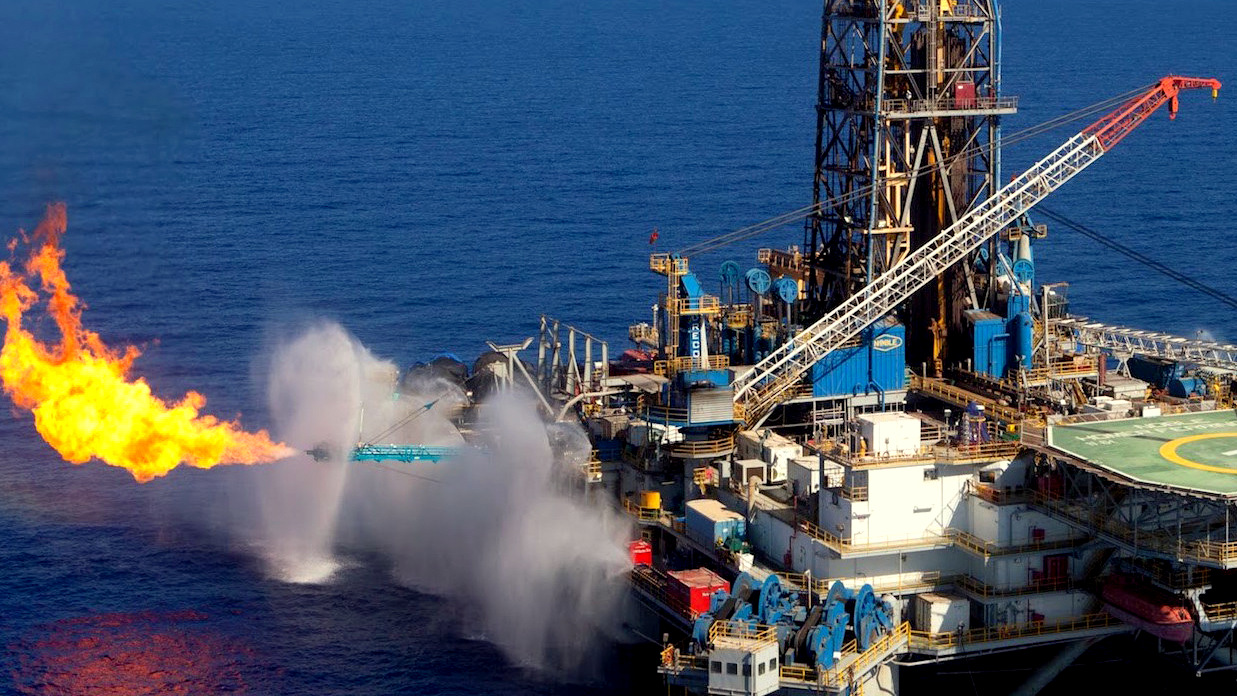
MINNEAPOLIS — Israel finalized a massive deal with Jordan last month to exploit the Leviathan offshore gas field, a massive reserve of natural gas in Israeli waters.
The $10 billion deal between Israel and Jordan’s National Electric Power Company, signed on Sept. 26, reflects Israel’s increasingly powerful position in the global energy market. At the same time, though, Israel’s efforts to wield increased control over the flow of energy through the Middle East and North Africa have taken a heavy toll on regional stability and in human lives lost.
Under the terms of the agreement, Israel would provide NEPCO with 1.6 trillion cubic feet of natural gas over the next 15 years.
Both Jordan and Israel are major recipients of U.S. foreign aid. Israel is slated to receive $38 billion in military aid over the next ten years, while foreign aid to Jordan is slated to total $1 billion in fiscal year 2017. Under U.S. foreign policy, aid to Jordan is intended to protect Israel by maintaining the political stability of (and U.S. control over) Israel’s neighbors.
Watch Jordan plans to import gas from Leviathan gas field:
https://youtu.be/ro06oobKaMQ
The deal has provoked controversy and protests in both Israel and Jordan. Protesters included Jordanian supporters of the Boycott, Divestment, and Sanctions (BDS) movement, while Israeli activists objected to the role of Texas-based energy giant Noble Energy in the deal. Noble Energy originally discovered the Leviathan field in 2010, and along with Israel’s Delek Group, it owns a controlling interest in the consortium overseeing its development.

Last November, Russian state-owned news outlet RT reported that some Israeli activists were calling the impending deal “the great gas robbery.” Quoting Israel’s Channel 2 News, RT reported that one protest organizer said the reserve represents “natural resources that belong, by law, to the citizens of Israel.” Similar protests also took place in July 2015, according to the Jerusalem Post.
The consortium headed by Nobel Gas is also behind a January deal to sell $1.3 billion in natural gas from the Leviathan gas fields to an Israeli power giant, Edeltech, and its Turkish partner, Zorlu Enerji. The gas will fuel two power plants the companies plan to build in Israel.
Watch Israel: Hundreds march against Leviathan gas deal with US firms:
The Leviathan deals are just the first step in Israel’s long-term plan to leverage its energy reserves for profit and political power. Israel, Greece and Greek Cyprus are in talks to bring Israel and Cyprus’ natural gas reserves to Europe, Reuters reported on Sept. 28.
“Delivery options range from a pipeline linking the three countries, a pipeline to Turkey, or use of liquefied natural gas (LNG) storage facilities in Egypt for shipment to Europe,” according to Reuters.
A feasibility study is also underway for a 1,300 kilometer (about 807 miles) offshore pipeline leading from Israel to Greece, according to a recent report from Pipeline Technology Journal. Panos Skourletis, Greece’s energy minister, told the journal that Athens sees its energy alliance with Israel as a way to become “a gateway of natural gas of the eastern Mediterranean to Europe.”
Natural gas ‘at the heart’ of Israel’s wars on Gaza
“Just 15 years ago, Israel relied entirely on imported coal, natural gas and oil for its energy needs,” noted Oren Liebermann in a report for CNN Money in May.
Under this energy deficit, Israel frequently imported oil and gas from repressive regimes it supports like the South Sudanese government, and even Daesh (an Arabic acronym for the terrorist group frequently known as ISIS or ISIL in the West).
Accessing the Leviathan gas field and the Tamar gas field, another natural gas deposit in the Mediterranean which is also controlled by the Noble Energy-led consortium, are key to establishing Israeli energy independence. The Tamar field, Liebermann noted, is already producing 40 percent of Israel’s energy.
Efforts to secure new sources of energy, and profit from them, have come at a massive cost to the stability of the Middle East and taken the lives of numerous Palestinians and Muslims. In the summer of 2015, Michael Schwartz, a sociology professor at Stony Brook University in New York and an expert on Middle Eastern energy politics, told MintPress News that years of brutal wars on Palestine have been provoked by Israel’s efforts to secure access to these gas fields, located just off the coast of the Gaza Strip. Sean Nevins reported:
“Schwartz argues that natural gas located off the coast of the Gaza Strip in Palestinian waters is at the heart of the last five major Israeli military actions against Palestine: Former Israeli Prime Minister and Defense Minister Ehud Barak’s orders for the Israeli navy to control Gaza’s coastal waters in the early 2000s; then-Prime Minister Ehud Olmert’s blockade of the Gaza Strip on June 15, 2007; Operation Cast Lead in 2008; Operation Returning Echo in 2012; and Operation Protective Edge, which took place last summer.”
Israel’s attack on Gaza in the summer of 2014, known as “Operation Protective Edge,” left as many as 2,300 Palestinians dead, including over 500 children, and displaced at least 500,000 people. According to Schwartz, Protective Edge was actually an act of retaliation against Palestine for a planned natural gas exploration deal with Russian natural gas giant, Gazprom. Schwartz said:
“At the beginning of 2014, they [the Palestinians] had come to a preliminary agreement with Gazprom brokered by the Putin government with implicit promises that the Russian navy would protect their [Palestinian] facilities, and very explicitly saying, ‘We’re going to cut Israel out of it altogether.’”
Israel has also used the chaos of the Syrian civil war as a way to further cement its control over the Golan Heights and its rich energy reserves. Israel has illegally occupied the Golan Heights region of Syria since the Six-Day War of 1967, and WikiLeaks’ archive of Hillary Clinton’s emails shows that the United States supported regime change and civil war in Syria in part to help Israel.
Meanwhile, Palestinians are allowed only grudging access to natural resources which would belong to them, were it not for the Israeli occupation. Israeli naval forces frequently fire on Palestinian fishing vessels, while villages in the West Bank often struggle for access to fresh water.
Last month, amid its newfound energy wealth, Israel finally agreed to create a new energy pipeline to Gaza to alleviate an ongoing energy crisis in the Occupied Territories.
“We want to help the population of Gaza and the first step is to improve the supply of energy and water … including laying a gas pipeline,” Prime Minister Benjamin Netanyahu said during a visit to the Netherlands, according to a Sept. 15 report from The Times Of Israel.
Despite Netanyahu’s expression of humanitarian concern for the indigenous population of Gaza, the Israeli government has allowed the energy crisis to linger for years. At times, it’s grown so severe that it threatened access to crucial health services, and limited Palestinians’ ability to treat sewage and purify drinking water.

